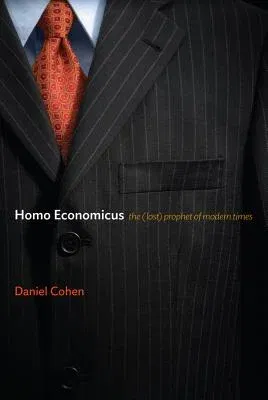The West has long defined the pursuit of happiness in economic terms but
now, in the wake of the 2007-8 financial crisis, it is time to think
again about what constitutes our happiness.
In this wide-ranging new book, the leading economist Daniel Cohen traces
our current malaise back to the rise of homo economicus: for the last
200 years, the modern world has defined happiness in terms of material
gain. Homo economicus has cast aside its rivals, homo ethicus and homo
empathicus, and spread its neo-Darwinian logic far and wide. Yet,
instead of bringing happiness, homo economicus traps human beings in a
world devoid of any ideals. We are left feeling empty and
dissatisfied.
Today more and more people are beginning to recognize that competition
and material gain are not the only things that matter in life. The
central paradox of our era is that we look to the economy to give
direction to our world at the very time when social needs are migrating
toward sectors that are hard to place within the scope of market logic.
Health, education, scientific research, and the world of the Internet
form the heart of our post-industrial societies, but none of these
belong to the traditional economic mould. While human creativity is
higher than ever, homo economicus imposes himself like a sad prophet, a
killjoy of the new age.
Drawing on a rich array of examples, Cohen explores the new digital and
genetic revolutions and examines the limitations of homo economicus in
our rapidly transforming world. As human beings have an extraordinary
ability to adapt, he argues that we need to rebalance the relation
between competition and cooperation in favour of the latter.
This thought-provoking analysis of our contemporary predicament will be
of great value to anyone interested in the relationship between what
happens in our economies and our personal happiness.

